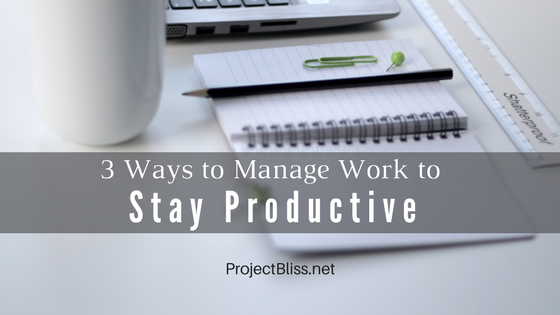
This week I’m on vacation with my family and featuring a post by Ari Farrow of Cerri.
Regardless of what you’ve put on this year’s bucket list, managing your time in order to get stuff done is going to be the top concern for anyone hoping to achieve their goals.
While this is true of both your professional and personal goals, the solution to the problem of being more efficient is one that can apply to all aspects of your life.
Finding time to get stuff done means operating at peak efficiency, but doing so for an extended period of time might have adverse results in the long term. Delivering great things as fast as humanly possible is a wonderful goal, but if you aren’t careful about carving out time for yourself you risk the chance of derailing your progress through fatigue, burn out, or excess stress.
With that in mind, here are three way to manage your time so that being efficient doesn’t make your life unenjoyable. After all, what’s the point of achieving all your goals if you don’t carve out enough time for yourself to sit back and enjoy the spoils of your efforts?
1. Schedule Your Downtime
Planning to do nothing may seem counter-productive, but consider all of the benefits that come from it. Research has proven that some of our best ideas come from the “idle mind,” a state of thinking that occurs whenever we’re preoccupied with something that doesn’t exactly feel like work.
The idle mind is the reason why people get their best ideas in the shower.
So while you may be the sort of person whose daily calendar has cascading levels of color-coded organization, think about leaving some gaps so you can spend your day doing nothing at all. Go for a walk, stare out the window, or meditate at your desk. It can be the recharge time you need for that battery in your back to get back to 100%.
2. Shift Your Focus to Stay Excited
Nobody likes staring at a screen for hours at a time answering emails. That’s why it’s important to spice up your schedule with some variety, even if it’s something as simple as just you looking at another screen or completing another task.
If you find you’re no longer making progress on developing that work plan for your team, shift your focus to something you can be more productive on – then come back to it later.
Once your routine starts to feel like work in its own right, switch things up again!
3. Respect Your Own Schedule
The urge to get everything done as fast as possible might propel you to work yourself to the bone, but try to push back on your controlling schedule whenever possible.
Deadlines aren’t set in stone and pushing things back in order to make sure they’re done right will end up reaping its own rewards in the long run.
Risk of long work hours or stressful schedules can be high in some professions.
Studies show that doctors are prone to decision fatigue, which can have negative consequences for patients.
And the US S. Department of Transportation Federal Aviation Administration created guidelines for Fatigue Risk Management Systems for aviation safety as a “fatigue mitigation tool that minimizes the acute and chronic sources of fatigue and manages the potential risks associated with fatigue.”
But while the risks of actual fatigue may be lower in your job, you still run the risk of negative impact from working long hours or not taking breaks.
Working reasonable hours will keep your energy and enthusiasm up for your work. You’ll make better decisions and have improved morale. And you’ll be more valuable to your company with your improved performance.
No Responses